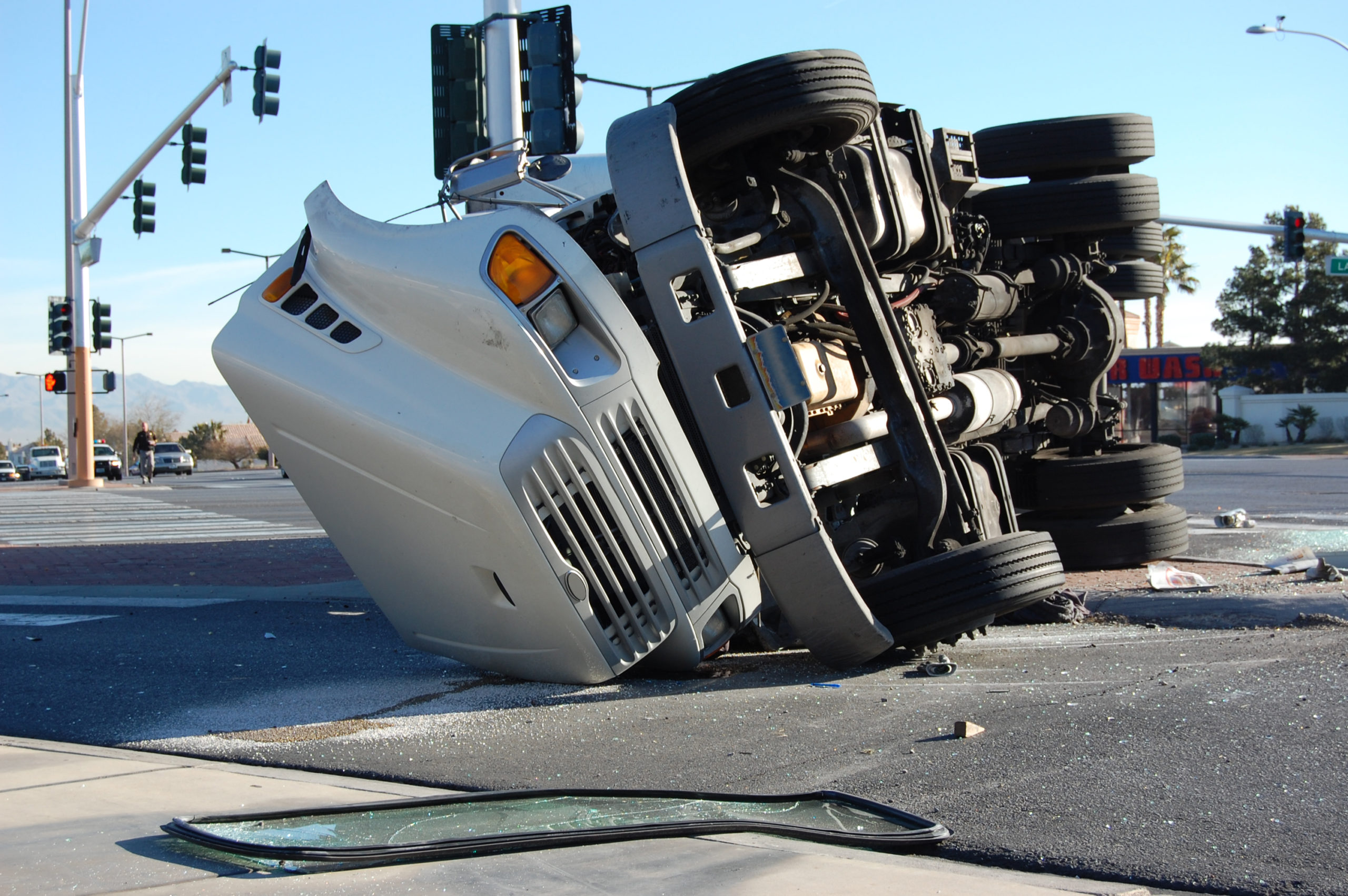
Sharing the road with or doing work near any large construction vehicle can be a harrowing experience.
They’re uncommonly large. They often spill their cargo in transit, turning small pebbles into dangerous projectiles that crack windshields and chip paint. And they take a beating in day-to-day use, potentially making them more prone than other vehicles to suffer a dangerous mishap like a tire blowout or mechanical failure.
Cement trucks, in particular, can present a safety risk for other motorists. In this blog post, we take a look at why that is, what you can do to keep yourself as safe as possible when sharing the road with a cement truck, and how an experienced truck accident lawyer can assist you if a cement truck crash harms you or a loved one.
[lwptoc]
A Primer on Cement Trucks
If you’re like most drivers, you have little, if any, understanding of how a cement truck (also called a cement mixer, concrete mixer, or transit mixer) works. But not to worry. With a hat-tip to the folks at HowStuffWorks.com, SFGate.com, and the Portland Cement Association (the industry association for American cement manufacturers), we’ve put together the basics for you.
About Cement
To begin, here’s something we bet you didn’t know: a cement mixer doesn’t actually mix cement. It mixes concrete. Cement is a powdery mixture of fine-ground minerals (primarily calcium, silicon, aluminum, and iron) created through a process in which the basic components are mined, crushed, combined, and heated in a kiln. The end product is then ground into the fine powder known as cement.
About Concrete
Cement is one of three ingredients in concrete. The other two are water (which when combined with cement forms a thick paste) and aggregate (essentially, rocks and pebbles). When aggregate combines with cement paste, it coats and fills in the space between the aggregate. While wet, workers can mold and pour that material.
Once it dries, however, that same mixture hardens into the building material we know as concrete.
What a Cement Truck Does
The most common way to mix the three ingredients that comprise concrete is in a rotating drum. Small concrete drums are regular fixtures at construction sites. The drum rotates to keep the wet concrete mixture constantly in motion, to prevent it from hardening before construction workers pour it.
In their most basic form, cement trucks are simply large concrete drums mounted on a truck chassis. They’re loaded with water, cement, and aggregate, and then transport that mixture to a job site. In transit, the drum rotates to keep the wet concrete mixture from setting. At the site, the truck dumps the mixture down a chute to spread or shape into a structure.
Some newer designs of cement trucks transport concrete ingredients separately and mix them en route or on-site to builder specifications.
Cement Truck Specs
Two characteristics typify cement trucks: they’re oddly shaped, and they’re enormous.
The oddball shape of cement trucks, defined by their tilted, rotating concrete mixing drum, makes them easily recognizable. Drum sizes and shapes vary, depending on their manufacturer, the power of the motor that turns the drum and the engine that drives the truck, and the size of the chassis on which the drum sits. The variability of these components means that cement trucks have varying performance characteristics, a topic to which we return later on.
The drum and its contents tip the scales at up to 30,000 pounds, according to HowStuffWorks.com. Add that to the truck and chassis, and a cement truck can weigh upwards of 60,000 pounds when carrying a full load of wet concrete to a construction site.
That’s nearly as much as a fully loaded tractor-trailer, but at just half the length along which to distribute the weight. The result: a truck that exerts tremendous pressure on the road surface.
The Challenges and Dangers of Cement Truck Operation
It isn’t easy to drive a cement truck or to keep it in safe working condition. Let’s look at two unique challenges and dangers inherent in these large, heavy machines.
Maintenance Challenges
Cement trucks take tremendous abuse. They carry massive loads that must remain in constant motion, which involves the proper functioning of a complicated machine. They also frequently operate on rough, uneven terrain—construction sites, mostly—that tests their parts’ durability. Only constant maintenance can keep cement trucks operating safely.
Consider one unique aspect of maintaining cement trucks, highlighted by HowStuffWorks.com in its dissertation on the subject. Over time, the rotating drum of a cement truck, which mixes the concrete, becomes lined with a layer of hardened concrete—the residue from loads of wet concrete the truck carries.
That layer can inhibit the proper functioning of the cement mixing drum, such as by throwing off its balance or getting in the way of its moving parts. It also adds significant weight to the truck, which causes extra wear and tear on brakes and other mechanical systems, and decreases fuel economy. And, that extra layer reduces the drum’s volume, which heightens the risk that an operator will overload it. (Removing that hardened concrete requires someone to jackhammer or blast the hardened concrete out of the interior—a very dirty and potentially dangerous job.)
In other words, maintaining a concrete truck takes a significant investment of time, effort, and capital. Any lapse in that maintenance can make a concrete truck dangerous to operate. Worn brakes, tires, and hydraulics, load imbalances, and mechanical failures can all lead to deadly accidents.
Blind Spot Dangers
The odd, irregular shape of cement trucks creates numerous challenges for their drivers and other motorists who share the road with them. Regular readers of this blog know that trucks of any size and shape have large blind spots that can make smaller vehicles invisible to truckers. A car driving in a truck’s blind spot risks getting sideswiped or (literally) driven over if the truck driver does not take care.
With cement trucks, blind spot risks only become more acute and hazardous. The size and shape of a cement truck’s blind spots differ from those of other trucks, and, because of the variability of cement mixing drum dimensions, even from one cement truck to the next. That makes for significant uncertainty about blind spot risks for cement truck drivers and other motorists alike.
To keep the public safe, cement truck drivers must take extreme care to learn the dimensions of their particular truck’s blind spots. Truckers need to know the size of the blind spot to the rear of a cement truck since the truck must often back up close to a job site to deliver its cargo. Without knowing the danger zones locations, a driver could back into other vehicles or over construction workers.
Potential Cement Truck Accidents
Cement truck accidents can happen in a variety of ways. Here are some ways that cement truck dangers can translate into tragic accidents.
Rollovers
The relatively tall, narrow profile of a cement truck, combined with the radial force exerted by its rotating drum, can make the truck susceptible to rolling over. Cement trucks can roll over when they make turns or navigate highway exit ramps at even modest speeds, when they swerve to avoid other vehicles, and when they travel on uneven roads or veer onto soft road shoulders. (To get an idea of how common cement truck rollovers are, just try Googling “cement truck rollover” sometime—it’s a distressingly common occurrence.)
Cement trucks that suffer mechanical failures, or have become unbalanced due to a lack of maintenance, pose a particular risk of rollover.
A rollover accident involving a cement truck can cause catastrophic damage. The truck can land on other vehicles, crushing them. It can crash into other vehicles or roadside property. It can spill its concrete cargo. Any of these events may result in the loss of life or serious injuries.
Rear-End Collisions
Cement trucks aren’t built for speed. But because of their weight, it takes a significant amount of braking power to bring them to a controlled stop, no matter how fast they travel. Any failure or breakdown of a cement truck’s brakes, or any lapse by a cement truck driver in judging the truck’s safe stopping distance, can lead to the truck rear-ending—and likely destroying—a smaller vehicle. In all likelihood, the occupants of that smaller vehicle will suffer severe injuries.
By the same token, an accident in which a smaller vehicle rear-ends a cement truck can also have catastrophic consequences. In such a collision, the smaller, lighter vehicle will absorb most of the force of impact. It may even get wedged beneath the rear of the cement truck. Drivers should always exercise caution around cement trucks and give them plenty of room at intersections and other locations where rear-end collisions often occur.
Operational and Maintenance Mishaps
Cement trucks deliver concrete to construction sites, many of which feature rough and unstable terrain. Cement truck drivers must exercise care in every aspect of operating a truck at these locations to ensure their safety and that of construction workers. Mistakes involving backing the truck up to where it will deliver mixed concrete, or in the offloading of the concrete itself, can cause preventable tragedies.
Similarly, as we discussed above, cement trucks require frequent maintenance, some of which workers must perform inside the truck’s concrete mixing drum. That is hazardous work, and it takes skilled maintenance workers equipped with functioning safety gear to do it safely. Small errors by cleaning crew members or truck operators, or malfunctioning safety equipment, can lead to catastrophic accidents during the process of chipping hardened concrete from the inside of a mixing drum.
How a Skilled Truck Accident Attorney Can Help
Individuals who suffer injuries in a cement truck accident have the legal right to financial compensation. A skilled truck accident injury lawyer can represent those individuals in legal actions aimed at securing that compensation.
Cement Truck Accident Injury Lawsuits
Attorneys routinely represent victims in lawsuits against parties whose dangerous actions caused a harmful cement truck accident.
Through a lawsuit, victims can often recover payment for:
- Medical expenses related to treating cement truck accident-related injuries, such as the costs of emergency care, hospital stays, physical therapy, and medication.
- Other expenses the victim is forced to incur because of the accident, such as the cost of hiring someone to help with everyday tasks the victim cannot perform, such as childcare or transportation.
- Wages and income the victim misses out on earning, such as when an injury forces the victim to miss work or leave the workforce altogether.
- Physical pain, emotional suffering, and other non-economic damages caused by the cement truck accident and the injuries it caused.
Lawsuits against parties at fault for causing cement truck accidents can sometimes result in an award of extra, punitive damages, which aim to punish those parties for their conduct.
Cement Truck Accident Workers Compensation Claims
Workers who suffer injuries in connection with cement truck accidents may receive benefits under their employer’s workers’ compensation insurance policies.
State laws typically entitle workers to workers comp benefits to help them pay for:
- Any medical care reasonably necessary to treat a work-related cement truck accident injury; and
- Lost wages from any time that a work-related cement truck injury kept them off the job.
Workers’ comp is a form of no-fault insurance, which means workers have the right to receive its benefits regardless of who caused the cement truck accident that injured them.







